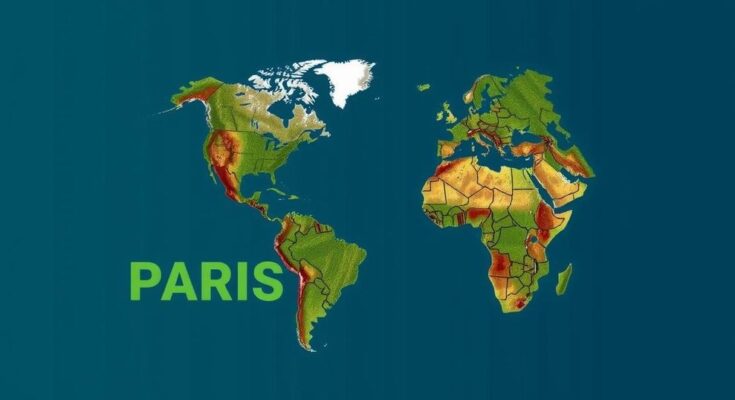The United Nations has reported that national pledges to reduce greenhouse gas emissions are inadequate to meet the goals set by the Paris Agreement. Current commitments will only decrease global emissions by 2.6% by 2030, falling far short of the required 43% reduction. The upcoming COP29 climate talks will be critical for nations to present stronger climate action plans and secure vital financial support for developing countries. Additionally, greenhouse gas concentrations have reached alarming levels, substantiating the need for urgent measures to curb climate change.
The United Nations has issued a stark warning regarding the inadequacy of current national pledges to reduce greenhouse gas emissions as countries gear up for the upcoming climate negotiations in November. According to the latest assessment from the United Nations Framework Convention on Climate Change (UNFCCC), the submitted nationally determined contributions (NDCs) are projected to reduce global emissions by only 2.6% from 2019 levels by 2030, a modest increase from 2% the previous year. However, this figure falls significantly short of the 43% reduction deemed necessary by scientists to limit global temperature rise to 1.5 degrees Celsius as per the Paris Agreement. Simon Stiell, the secretary general of UNFCCC, emphasized that the current plans are vastly insufficient to prevent dire economic and humanitarian repercussions worldwide. He called for a substantial enhancement of NDCs to clearly outline necessary actions. The upcoming COP29 climate talks in Baku, which will involve nearly 200 countries, will focus on establishing a global emissions trading system and a crucial $100 billion annual financial assistance program targeting developing nations. The NDC Partnership’s Pablo Vieira remarked on the strategic nature of the NDC process, indicating that nations may seek increased funding in return for more ambitious commitments. Additionally, a report from the World Meteorological Organization highlighted an alarming increase in greenhouse gases, with carbon dioxide concentrations reaching record highs, now at 420 parts per million, driven by factors such as unprecedented wildfire seasons. WMO Secretary General Celeste Saulo emphasized the critical nature of these rising figures and their inevitable impact on life and the planet.
The pressing issue of climate change continues to challenge governments and international organizations, necessitating robust strategies to mitigate its effects. The Paris Agreement, adopted in 2015, established a universal framework for countries to set their climate targets, known as nationally determined contributions (NDCs), aimed at limiting global warming to well below 2 degrees Celsius, preferably to 1.5 degrees Celsius. However, recent assessments reveal that the commitments made thus far fall significantly short of what scientists recommend to achieve these crucial temperature goals. The upcoming climate negotiations at COP29 provide a pivotal opportunity for nations to strengthen their pledges and enhance cooperative financial mechanisms to support vulnerable countries in their climate efforts.
The UN’s recent report underscores the urgent need for nations to elevate their climate action ambitions in light of the insufficient progress toward the Paris Agreement targets. Current NDCs are not only short of scientific recommendations but also pose significant risks to global livelihoods and economies. With the upcoming COP29 negotiations set to play a critical role in shaping future commitments, the international community’s ability to forge a pathway for meaningful climate action remains contingent upon collaborative efforts and increased funding. The alarming rise in greenhouse gases further amplifies the immediate need for decisive action to combat climate change and safeguard our planet for future generations.
Original Source: kfgo.com




